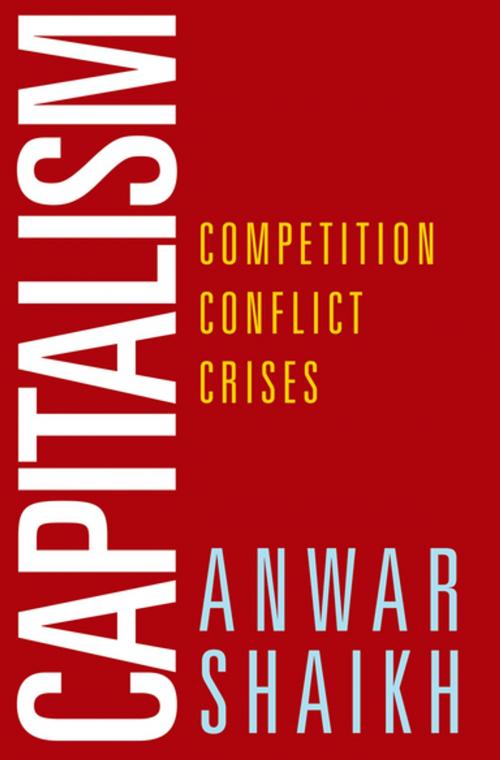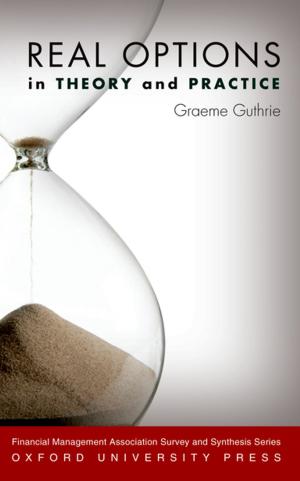Capitalism
Competition, Conflict, Crises
Nonfiction, Social & Cultural Studies, Political Science, Politics, Economic Conditions, Business & Finance, Economics, Theory of Economics, Economic History| Author: | Anwar Shaikh | ISBN: | 9780190298340 |
| Publisher: | Oxford University Press | Publication: | January 15, 2016 |
| Imprint: | Oxford University Press | Language: | English |
| Author: | Anwar Shaikh |
| ISBN: | 9780190298340 |
| Publisher: | Oxford University Press |
| Publication: | January 15, 2016 |
| Imprint: | Oxford University Press |
| Language: | English |
Orthodox economics operates within a hypothesized world of perfect competition in which perfect consumers and firms act to bring about supposedly optimal outcomes. The discrepancies between this model and the reality it claims to address are then attributed to particular imperfections in reality itself. Most heterodox economists seize on this fact and insist that the world is characterized by imperfect competition. But this only ties them to the notion of perfect competition, which remains as their point of departure and base of comparison. There is no imperfection without perfection. In Capitalism, Anwar Shaikh takes a different approach. He demonstrates that most of the central propositions of economic analysis can be derived without any reference to standard devices such as hyperrationality, optimization, perfect competition, perfect information, representative agents, or so-called rational expectations. This perspective allows him to look afresh at virtually all the elements of economic analysis: the laws of demand and supply, the determination of wage and profit rates, technological change, relative prices, interest rates, bond and equity prices, exchange rates, terms and balance of trade, growth, unemployment, inflation, and long booms culminating in recurrent general crises. In every case, Shaikh's innovative theory is applied to modern empirical patterns and contrasted with neoclassical, Keynesian, and Post-Keynesian approaches to the same issues. Shaikh's object of analysis is the economics of capitalism, and he explores the subject in this expansive light. This is how the classical economists, as well as Keynes and Kalecki, approached the issue. Anyone interested in capitalism and economics in general can gain a wealth of knowledge from this ground-breaking text.
Orthodox economics operates within a hypothesized world of perfect competition in which perfect consumers and firms act to bring about supposedly optimal outcomes. The discrepancies between this model and the reality it claims to address are then attributed to particular imperfections in reality itself. Most heterodox economists seize on this fact and insist that the world is characterized by imperfect competition. But this only ties them to the notion of perfect competition, which remains as their point of departure and base of comparison. There is no imperfection without perfection. In Capitalism, Anwar Shaikh takes a different approach. He demonstrates that most of the central propositions of economic analysis can be derived without any reference to standard devices such as hyperrationality, optimization, perfect competition, perfect information, representative agents, or so-called rational expectations. This perspective allows him to look afresh at virtually all the elements of economic analysis: the laws of demand and supply, the determination of wage and profit rates, technological change, relative prices, interest rates, bond and equity prices, exchange rates, terms and balance of trade, growth, unemployment, inflation, and long booms culminating in recurrent general crises. In every case, Shaikh's innovative theory is applied to modern empirical patterns and contrasted with neoclassical, Keynesian, and Post-Keynesian approaches to the same issues. Shaikh's object of analysis is the economics of capitalism, and he explores the subject in this expansive light. This is how the classical economists, as well as Keynes and Kalecki, approached the issue. Anyone interested in capitalism and economics in general can gain a wealth of knowledge from this ground-breaking text.















